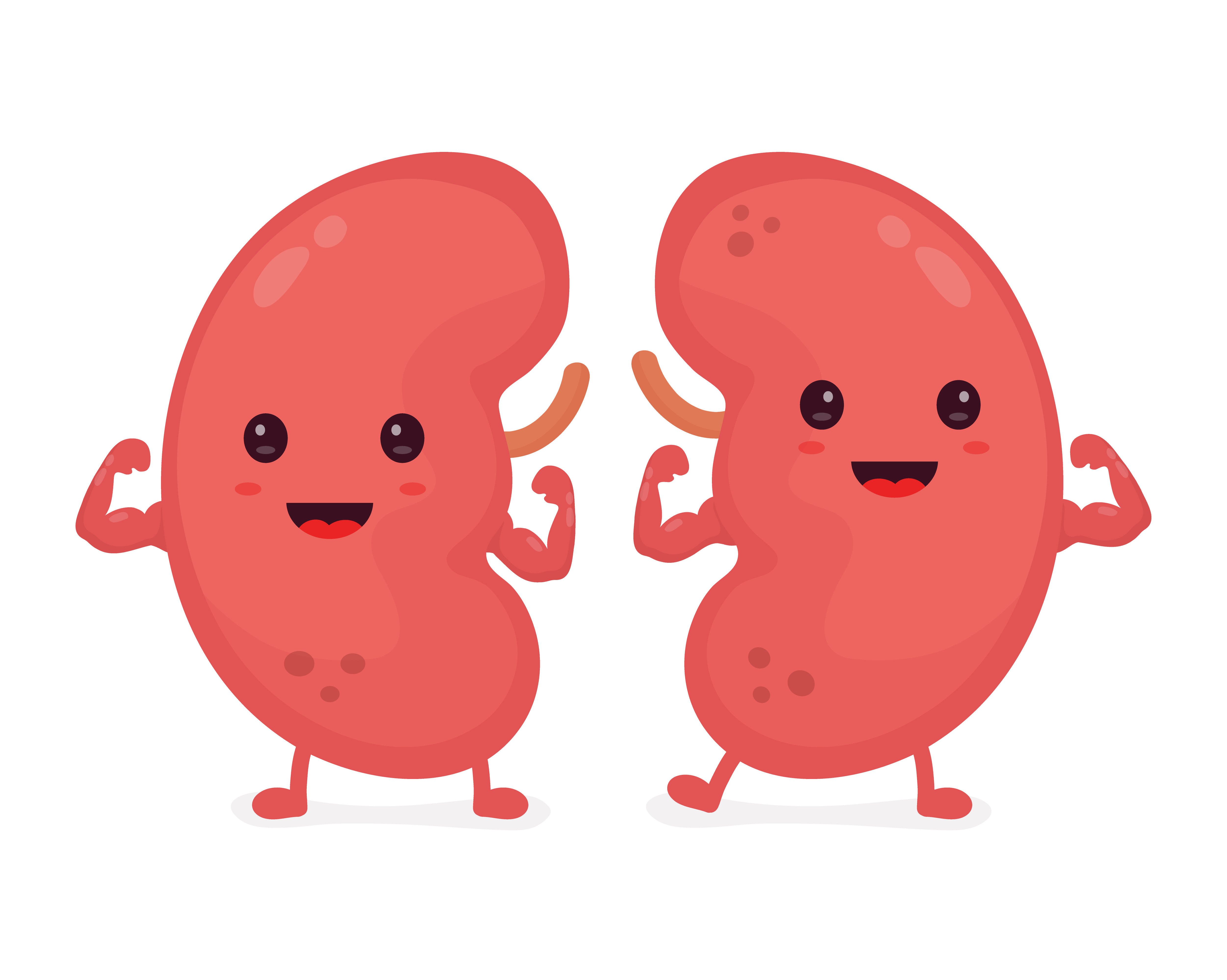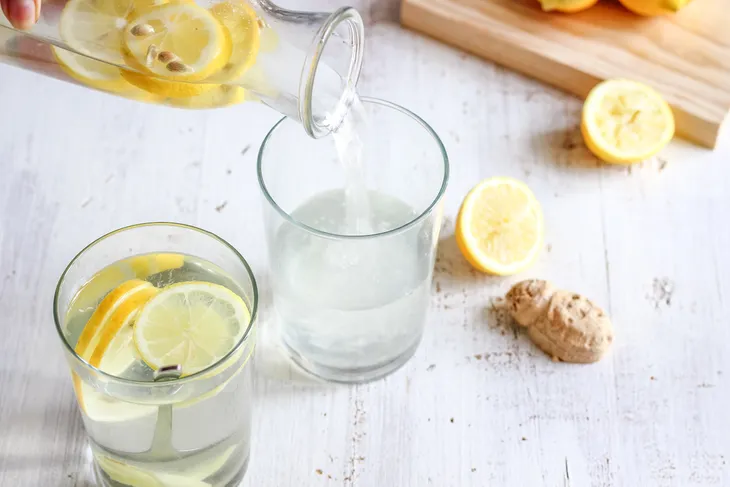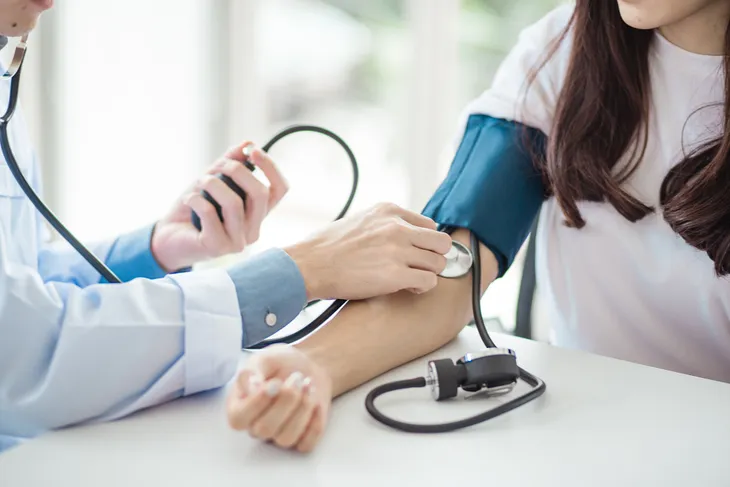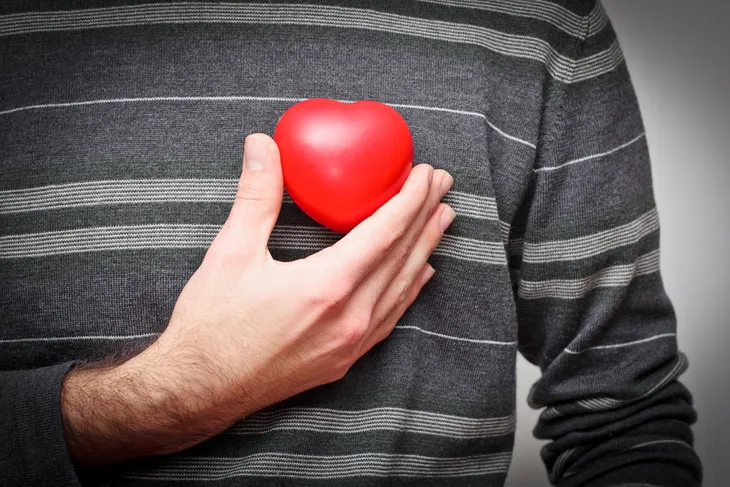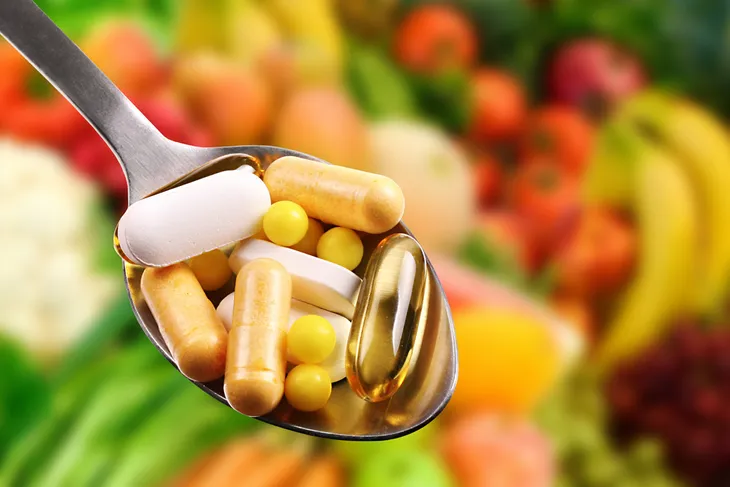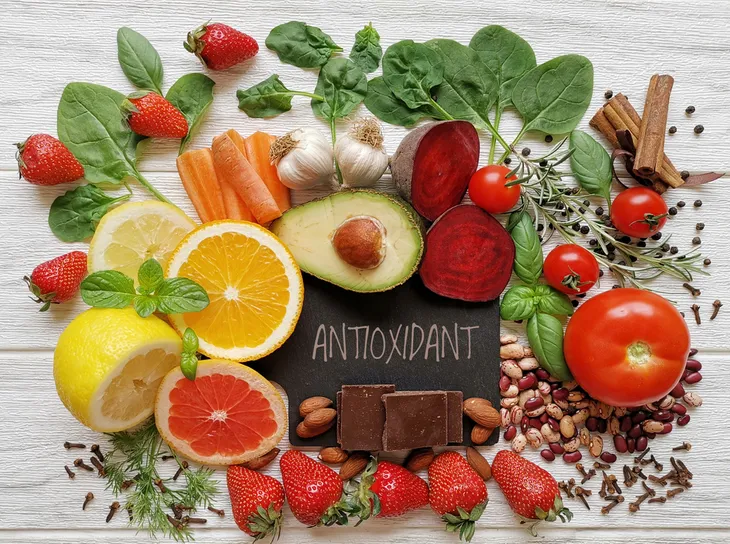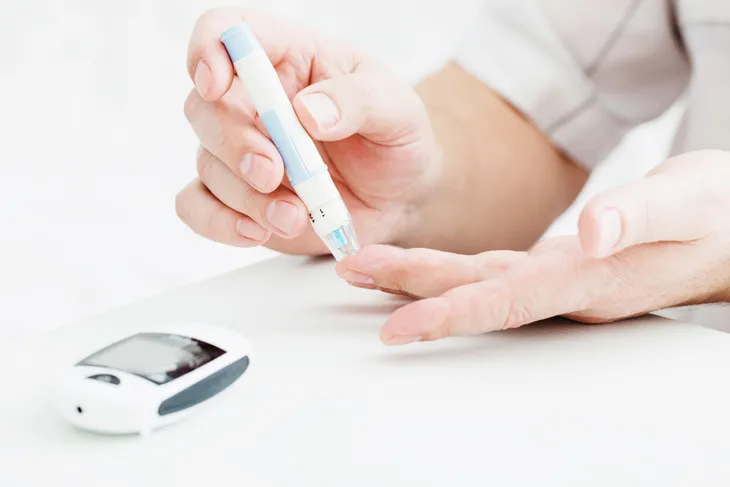You probably don’t think too much about your kidneys, and that’s a good thing: it means they’re working, and you’ll want to keep it that way. Having kidney problems can result in a variety of health problems, and can also lead to fatal kidney disease.
The purpose of your kidneys is to remove waste from your bloodstream (among other functions like producing urine), so you can imagine what might happen if that mechanism failed. Here are 12 ways you can help your kidneys remain healthy and efficient (and assist them if they’re already experiencing problems)…
Think you may have a kidney problem? Try Stone Breaker Natural Kidney Cleanse & Gallbladder Formula – an Amazon 4.5+ star best-seller with over 1,700 consumer ratings. (As an Amazon associate, this site earns from qualifying purchases).
Stay Hydrated
Water is an important component for all bodily functions, so it’s a good idea to make a habit of having a glass of water when you can. However, the Cleveland Clinic says while you should hydrate, you shouldn’t “overdo it.”
The clinic adds, “Contrary to popular belief, no studies have proven over-hydration as an effective practice in enhancing kidney function.” That doesn’t mean more water will do any harm to your kidneys, but you may find yourself spending more time in the bathroom as a result…
Eat a Kidney-Friendly Diet
The National Kidney Foundation suggests being wary of the kinds of foods you’re putting into your body (which, again, is a healthy habit to get into for your overall health). The foundation said a kidney and heart-healthy diet consists of less sodium, an ample supply of fruits and vegetables, and Omega-3 rich foods like salmon.
The source also notes you should try to reduce the number of processed foods you’re eating (which can be easier said than done), as well as knocking down the intake of saturated fats found in foods such as eggs, whole milk, cheese, and fried foods.
Get Moving
Your kidneys will perform better when you perform some exercise, according to Chatelaine magazine. The source notes that kidney health can get a boost through yoga, and even illustrates 5 yoga poses that apparently promote kidney health and wellness.
You don’t have to give up exercise if you already have a kidney issue. In fact, multiple sources recommend the opposite and encourage you to stay fit to assist your body’s functions. Talk to a doctor about taking on an exercise program or continuing with one that you’re already on following a diagnosis of chronic kidney disease.
Keep the Pressure Off
The National Kidney Foundation says that blood pressure is important as it relates to kidney health, and you may be prescribed medication to help with this. The foundation also notes the medications most preferred for those with existing kidney disease are called angiotensin-converting enzyme (ACE) inhibitors or angiotensin receptor blockers (ARBs).
Taking in too much fluid and salt can also increase the fluid load on your circulatory system which can increase your blood pressure, so be sure to talk to your doctor about limits for each. We already covered exercise, but we should also mention that’s a great natural way to keep blood pressure under control.
Take it to Heart
The National Institute of Diabetes and Digestive and Kidney Diseases notes that if you have heart disease, you could be at higher risk of kidney disease, and vice versa. This is because they share 2-main causes: diabetes and high blood pressure, notes the source.
In fact, the institute notes, “Heart disease is the most common cause of death among people who have kidney disease.” You can be tested for kidney disease through a blood and urine test at your doctor’s office, notes the source. The blood results will show your glomerular filtration rate (GFR), which indicates how efficiently your kidneys are functioning.
Beware of Supplements
While vitamin supplements can be beneficial in some cases if you’re low in some areas, taking too many can actually have a negative effect on your kidneys, according to the Cleveland Clinic. The same goes for herbal extracts, it adds.
The best course of action is to be upfront with your physician about any supplements you’re taking. Also, be aware that some over-the-counter supplements can interact with medications and cause a variety of side effects. There’s a handy reference guide to supplements/drug interaction posted on Drugs.com.
Quit Smoking
This one pops up a lot referring to lung and heart health, but it’s no different when it comes to your kidney health. Smoking can constrict and damage blood vessels, lowering the amount of blood flowing to the kidneys.
This WebMD article explains that smoking can boost the risk of kidney disease in diabetic patients, but can also “ lead to potentially dangerous changes in kidney function even in otherwise healthy people.” Some sources also say that smoking can prevent blood pressure medications from doing their job properly.
Lose Weight or Maintain a Normal Weight
There are many health risks associated with being overweight or obese because it puts a lot of stress on the body, mainly the major organs like the heart and kidneys. NHS advises people to maintain a healthy weight, or for those who are overweight, they should work toward losing the extra weight. The best ways to lose weight are through exercise and eating healthy, both of which are already on this list.
NHS advises exercising for about 150 minutes every week. It doesn’t have to be intense cardio sessions, they should be about medium intense through activities like walking, cycling, or swimming.
How can a person tell if they are overweight? Anyone can calculate whether or not they are at a healthy weight by using the body mass index (BMI) calculator.
Limit Alcohol
Unlike smoking which should be eliminated entirely, alcohol should be moderated. The safest option is to not drink at all, but we understand that people like to indulge in a drink here and there and there’s nothing wrong with that! Just remember, there’s a big difference between drinking and having a drink. Alcohol should be enjoyed in moderation because it can raise blood pressure and high blood pressure is one of the main causes of kidney disease.
NHS says men and women should not have more than 14 units of alcohol a week on a regular basis. To simplify things, WebMD advises no more than one drink a day for women and two for men. What constitutes one drink? A drink is 12 ounces for beer, 5 ounces for wine, and 1.5 ounces for distilled spirits like gin, rum, tequila, vodka, and whiskey.
Eat Lots of Antioxidants
We’ve already touched on how important it is to eat healthy, not only because some foods improve kidney function, but also because it keeps our weight down which also inadvertently helps put less pressure on these vital organs. Health24 talked to Cecile Verseput, dietitian and ADSA spokesperson who emphasized the importance of eating antioxidants because there has been research that found links between antioxidants and chronic diseases like chronic kidney disease (CKD). Antioxidants work to form free radicals that protect against chronic inflammation.
“Chronic inflammation results in permanent damage, for instance in blood vessels in the heart and kidneys, that causes damage,” says Verseput. “Antioxidants found in fresh fruit and vegetables can be seen as the ‘firemen putting out the harmful flames’ of inflammation caused by these free radicals.” So what contains antioxidants? The same source says the best sources are fruit and vegetables — who woulda thought?!
Manage Diabetes
Millions of people suffer from diabetes. Unfortunately, it’s not an uncommon condition and it can be quite serious. Diabetes occurs when the body is unable to regulate the amount of glucose in the blood which then leads to high sugar levels. These high levels are extremely dangerous for the organs, blood vessels and nerves. If it is not properly managed it can damage organs like the kidneys.
People with diabetes can help maintain their kidney health by managing and controlling this chronic condition. WebMD writes, “work with your doctor to keep your blood sugar levels in check. If they’re not under control, that can cause problems for your kidneys over time. Along with hypertension (high blood pressure), diabetes is one of the biggest concerns for kidney health.”
Visit the Doctor on a Regular Basis
People like to avoid doctors just like they avoid the dentist. They don’t want to hear about what they’re doing wrong or fear getting bad news. Plus, let’s face it, going to the doctor, setting up an appointment, and waiting around is a pain! We get it. But it’s important to keep up with regular doctor visits, especially if you’re at risk for kidney disease.
The doctor can perform tests that will check whether or not the kidneys are functioning properly. WebMD says there is a blood test called “GFR” (short for glomerular filtration rate) that checks how the kidneys filter and there’s a urine test to check for the presence of the blood protein, albumin. People should not have albumin in their urine, and if it is there then the doctor can follow up with more tests to find out why. But when it comes to the kidneys, it’s better to know earlier than later.
Think you may have a kidney problem? Try Stone Breaker Natural Kidney Cleanse & Gallbladder Formula – an Amazon 4.5+ star best-seller with over 1,700 consumer ratings. (As an Amazon associate, this site earns from qualifying purchases).
